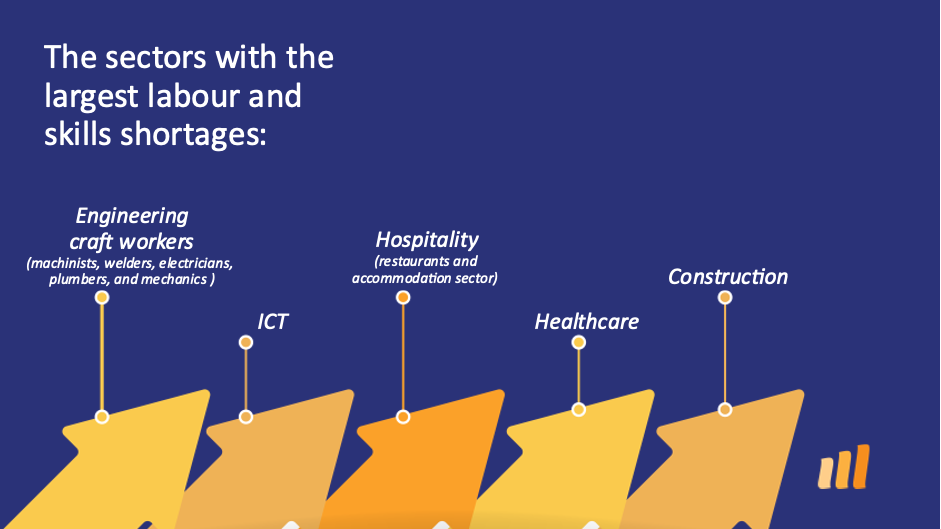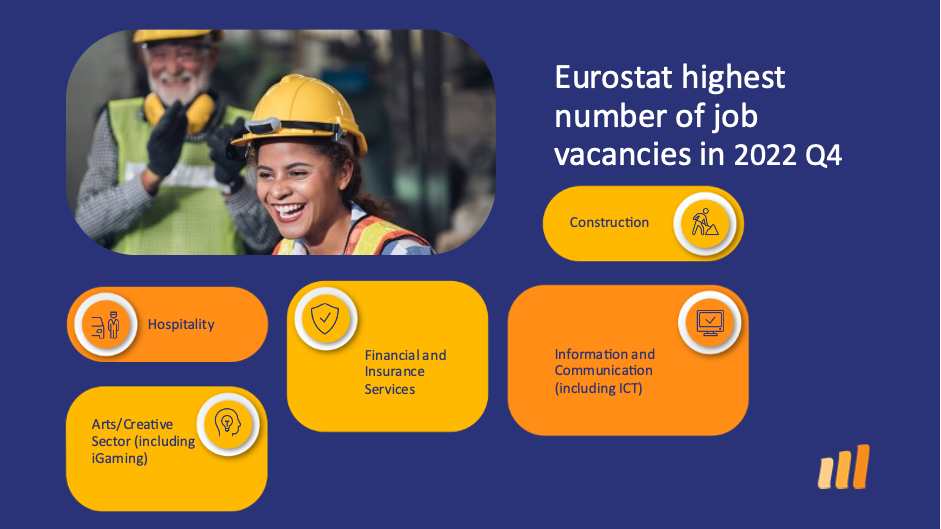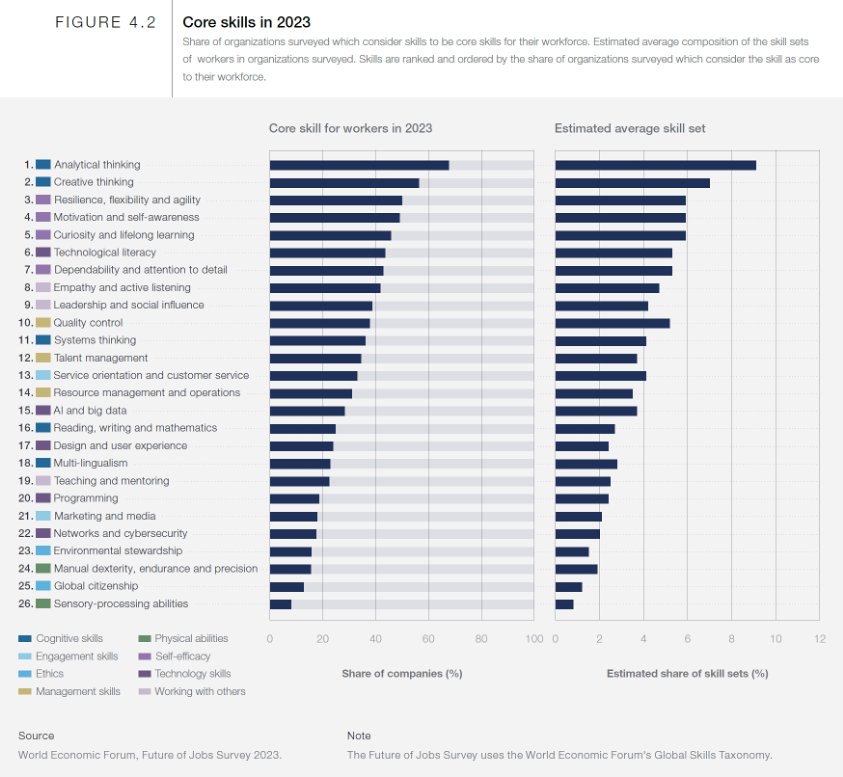
Malta Skills Survey
Technological advancements, new business models and national priorities, all effect trends in employment and the required skills development, amongst others. Without the necessary foresight and preparation of the workforce, this inevitably results in skills mismatches and shortages as well as unemployment. Through research undertaken by several institutions in Malta as well as at the European and international levels, maintaining an updated Skills Panorama helps to tackle these challenges, by providing the necessary evidence base on skills needs and labor markets.The National Statistics Office (NSO) conducted the first Malta Skills Survey between October and December 2022. The objective of this survey was to take stock of the range of skills among the working-age population of Malta and Gozo. Such skills profiling is essential to identify skills gap and/or skills mismatch, thereby making it possible for better training and re-training programs
European Commission
At a European Level, the European Commission also provides insights on skills and the labour market through the European Centre of Expertise (ECE) in the field of labour law, employment and labour market policies. The 2023 Thematic Review entitled, ‘Skills shortages and structural changes in the labour market during COVID 19 and in the context of the digital and green transitions’ aims to identify skills shortages that emerged during the COVID-19 pandemic, and how digitalization and the green transition further affect such shortages. The Review also documents policies and employer practices across the EU Member States used to mitigate skills shortages generally, as well as digital skills shortages specifically.

Cedefop
The European Centre for the Development of Vocational Training, CEDEFOP is the European Union’s reference centre for vocational education and training, skills and qualifications. It regularly issues publications, country specific reports, policy briefs, briefing notes and research papers, amongst others, on a variety of themes.
For instance, in 2018 a report was published entitled, ‘Skills forecast: trends and challenges to 2030’, containing information on skills supply and demand forecasts. This work, which was performed in collaboration between Cedefop and Eurofound, allowed examination of the tasks and skills content of the current and projected employment structure of Europe. The report is available: Skills Forecast Report 2018 – Trends and Challenges to 2030.
Specifically on Malta, the latest publication focuses on ‘Teachers and trainers in a changing world: Building up competences for inclusive, green and digitalized vocational education and training’ (2022), available at: Teachers and Trainers in a Changing World – Malta 2022. Such publications are also possible thanks to Malta’s involvement in Cedefop’s ReferNet, this being a network of institutions that provide information on national VET systems and policies in EU Member States, Iceland and Norway. More information on ReferNet is available: Cedefop ReferNet Network.
Discover more

Skills Intelligence
In December 2015, Cedefop started powering the Skills Panorama, an interactive web portal offering skills intelligence on countries, occupations and sectors in the European Union. The Skills Panorama approach, i.e. the focus on data-centred insights on occupations, sectors, and countries, is complemented with thematic focus on digitalisation, the green transition, matching of skills and jobs, learning in work and other areas

Skills OVATE
Skills-OVATE is an online platform providing detailed information on the jobs and skills employers demand, based on online job advertisements (OJAs) in 28 European countries. This work is a result of the collaboration between Cedefop and Eurostat, in the context of the Web Intelligence Hub, an ongoing project involving 17 organisations from 14 European countries, aiming to integrate its services into national statistical production systems.
Skills-OVATE provides access to a wealth of information based on millions of OJAs collected from thousands of sources, including private job portals, public employment service portals, recruitment agencies, online newspapers and corporate websites. Information is updated quarterly, with yearly averages for key variables being made available via Cedefop’s Skills Intelligence Platform.

Eurostat
Eurostat, the statistical office of the European Union, offers comprehensive data on various economic indicators, including job vacancies, for member countries like Malta. By analyzing Eurostat's data for Malta, one can identify the sectors that have the highest number of job vacancies. This valuable information enables policymakers, businesses, and individuals to gain insights into the labor market dynamics in Malta, helping them make informed decisions related to employment, education, and career planning. Eurostat's data serves as a reliable and authoritative source, facilitating a better understanding of the sectors with the greatest demand for workforce in Malta


Eurofound
Eurofound is the EU Agency for the improvement of living and working conditions. It works on four key topics:
i) Working conditions and sustainable work
ii) Industrial relations and social dialogue
iii) Employment and labour markets
iv) Living conditions and quality of life
In May 2023, Eurofound published a background paper outlining some of the key challenges in the EU’s labour markets. It outlines some factors for improving the matching of skills and jobs, both in the short and long term. The paper, entitled ‘Changing labour markets: How to prevent a mismatch between skills and jobs in times of transition
World Economic Forum
The World Economic Forum is the International Organisation for Public-Private Cooperation, engages the foremost political, business, cultural and other leaders of society to shape global, regional and industry agendas. In April 2023, it published the fourth edition in a series of reports on the Future of Jobs, exploring how jobs and skills will evolve over the next five years. It contains an analysis of employer expectations to provide new insights on how socio-economic and technology trends will shape the workplace of the future.

LinkedIn
LinkedIn also undertakes research on workforce data and the future of work. Earlier this year, LinkedIn published a report entitled, ‘Skills-First: Reimaging the Labor Market and Breaking Down Barriers’. Although a highly controversial topic, the online platform argued in favour of building a more resilient workforce through a skills-first approach to hiring (versus academic qualifications)
